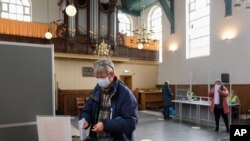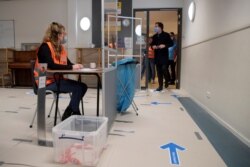Netherlands Prime Minister Mark Rutte and his ruling People’s Party for Freedom (VVD) will begin negotiations on a new ruling coalition government Thursday as voters sent them to victory for a fourth consecutive term.
Rutte’s VVD party was projected to take at least 35 of 150 seats in the lower house, a clear mandate, to form a new coalition government. Coming in second with 27 seats was the pro-European Union, center-left D-66, led by former U.N. diplomat Sigrid Kaag, with 27 seats, the best result in the party’s 55-year history.
The results and exit polling indicate that the far-right Freedom Party of anti-immigration, led by far-right anti-immigration lawmaker Geert Wilders, slipped to third place, dropping three seats to 17.
Rutte’s victory comes two months after he resigned following a scandal in which tax officials in his government falsely accused thousands of families of trying to scam childcare services. He is currently serving in a caretaker capacity.
Like last year’s U.S. election, the Netherlands vote made special allowances for the COVID-19 pandemic, with early and mail-in voting for seniors and others with special circumstances. Despite the pandemic, early indications show turnout at about 83%, about as high as four years ago.
Official returns are expected to be released throughout Thursday with final results to be announced on March 26.
The initial numbers from the poll indicated that Rutte would need to form a coalition with at least two other parties to get a majority of 76 seats in parliament.
Rutte has said he would not form a coalition with the Freedom party, leaving second place D-66, and current coalition member the Christian Democrats, which appears to have finished fourth, winning 14 seats, five fewer than it won in 2017.
Rutte has said he would like to finish the coalition process as quickly as possible. But in recent years, government formations have taken months, as parties negotiated over detailed policy plans.
With a record 37 parties taking part in the election, and 17 expected to garner enough votes to win at least one seat in parliament’s 150-seat lower house, forming coalitions in the government will be a tough and lengthy process. After the 2017 elections, coalition talks took seven months.







